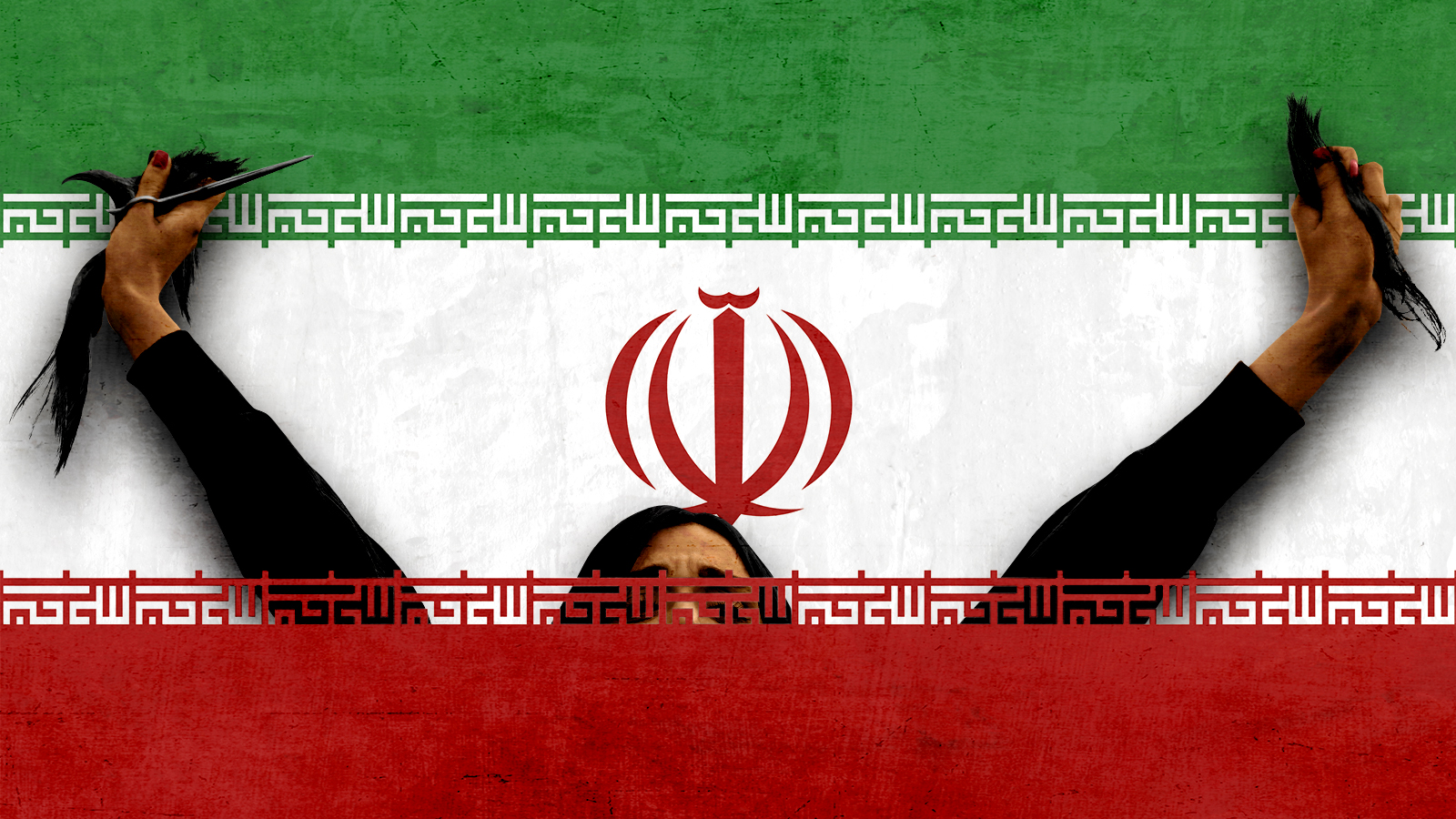How experts and students are parsing the protests in Iran
'They can't arrest us all'


A free daily email with the biggest news stories of the day – and the best features from TheWeek.com
You are now subscribed
Your newsletter sign-up was successful
For the last several weeks, protests have been raging in Iran over the death of Mahsa Amini, a 22-year-old woman who was detained by the morality police and later died in their custody. She was stopped in Tehran by officers whose job is to enforce the strict, mandatory dress code for Iranian women, which requires they cover their hair.
Powerful images from the protests show women cutting their hair in the streets and burning their hijabs, proudly defying the armed security forces standing before them. Despite the risk of arrests and even death — human rights groups believe at least 150 people have been killed at the demonstrations — teenagers and university students have played a major role in the uprising, demanding an end to the Islamic Republic's rule. In fact, it's people under 25, most of them women, who are fueling the demonstrations, CBS News reports.
Like being in a war zone
Iranian students have been protesting daily on college campuses since Saturday, the official first day of the academic year, shouting, "The mullahs must get lost!" and, referring to Iran's Supreme Leader Ayatollah Ali Khamenei, "Death to the dictator!" The scene was especially chaotic Sunday afternoon at the prestigious Sharif University of Technology in Tehran, where hundreds of students holding a sit-in soon found themselves facing off against armed riot police, security forces, and the Basiji — enforcers of morality rules.
The Week
Escape your echo chamber. Get the facts behind the news, plus analysis from multiple perspectives.

Sign up for The Week's Free Newsletters
From our morning news briefing to a weekly Good News Newsletter, get the best of The Week delivered directly to your inbox.
From our morning news briefing to a weekly Good News Newsletter, get the best of The Week delivered directly to your inbox.
Witnesses told The New York Times the Basiji fired on the crowd, and students, taking paintballs and rubber bullets to their heads, necks, and legs, began falling to the ground. Professors who heard the screams ran outside and encircled the students to form a human shield around them, witnesses said. Some who approached the Basiji and asked to safely escort students off campus were kicked, thrown down to the ground, or hit with batons.
"We thought they were going to kill us," Mahan, a 25-year-old engineering student, told the Times. "It felt like we were in a war zone and the enemy was hunting us down looking for victims to slay." A Sharif professor called it the "darkest, most horrifying day in the history of the university. I have never experienced anything like this. The trauma of what took place will stay with the students and all of the faculty for the rest of our lives."
"They can't arrest us all"
Sharif is a renowned school that attracts elite students. By cracking down on those protesting, authorities were sending a clear message to other students. "If your ultimate aim is to hold on to power, you want to limit or dismantle any form of effective mobilization of thought and dissent," Reza H. Akbari, an expert on social movements in Iran at American University in Washington, told the Times. "That is why they see students as such a threat. They know its potential. They have seen what it can do."
The violence was not enough to stop other university students; in fact, it solidified their support, and solidarity demonstrations popped up at other campuses. Witnesses told Reuters that Iranian security forces were deployed to several universities on Wednesday, but that hasn't been a deterrent. "Everyone is out on the streets," a college student said in one video. "We have to keep going. They can't arrest all of us."
A free daily email with the biggest news stories of the day – and the best features from TheWeek.com
The time for change is now
Previous uprisings in Iran caused by outrage over the economy, elections, and gas prices were quickly "muffled by the iron hand of a regime that brooks little dissent," writes The Washington Post's Ishaan Tharoor. The recent demonstrations, however, "may constitute something different." Protesters are being met "with predictable brutality," Tharoor says, yet they continue to march, seemingly undaunted and more determined than ever to send a message.
Generation Z — anyone born between 1997 to 2012 — is decades removed from the Iranian Revolution of 1979. They grew up differently — they have access to social media (though its censored), and ways of seeing what's going on outside of Iran — and are tired of sanctions and isolation, Maziar Bahari, the London-based editor of IranWire, told CBS News. Bahari's generation "gave the government the chance to reform itself," but the youth of today can clearly see "the Islamic Republic cannot be reformed, so this government has to be ended," he said. Under Iran's current leadership, young people are "becoming poorer," Bahari continued. "They are being humiliated at school. They're being humiliated on the streets by the morality police ... their country is being humiliated by the world because of their kind of government. So, imagine living in that country. You want change. You want the change today."
Catherine Garcia has worked as a senior writer at The Week since 2014. Her writing and reporting have appeared in Entertainment Weekly, The New York Times, Wirecutter, NBC News and "The Book of Jezebel," among others. She's a graduate of the University of Redlands and the Columbia University Graduate School of Journalism.
